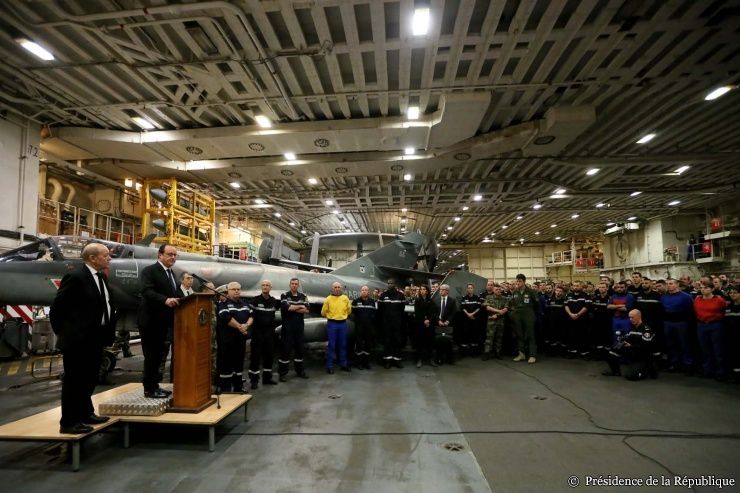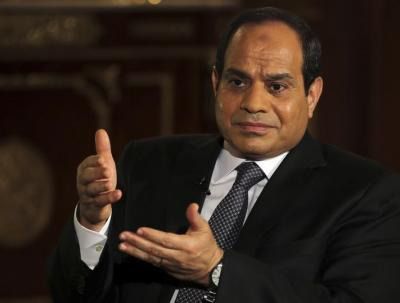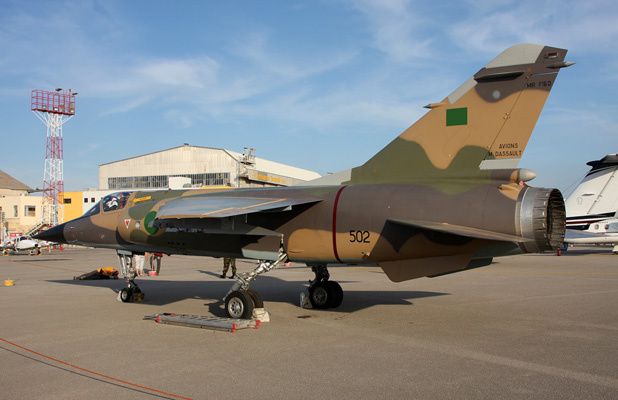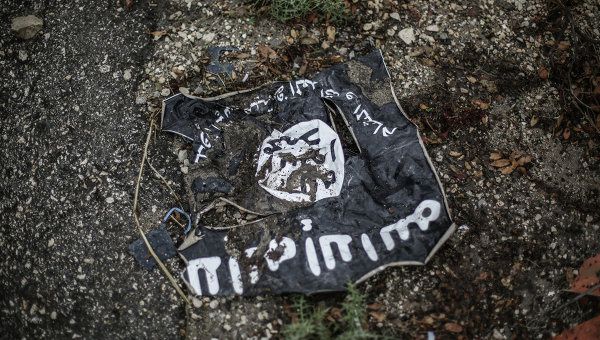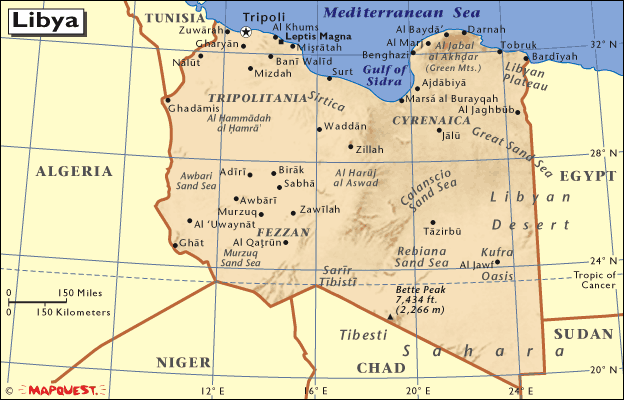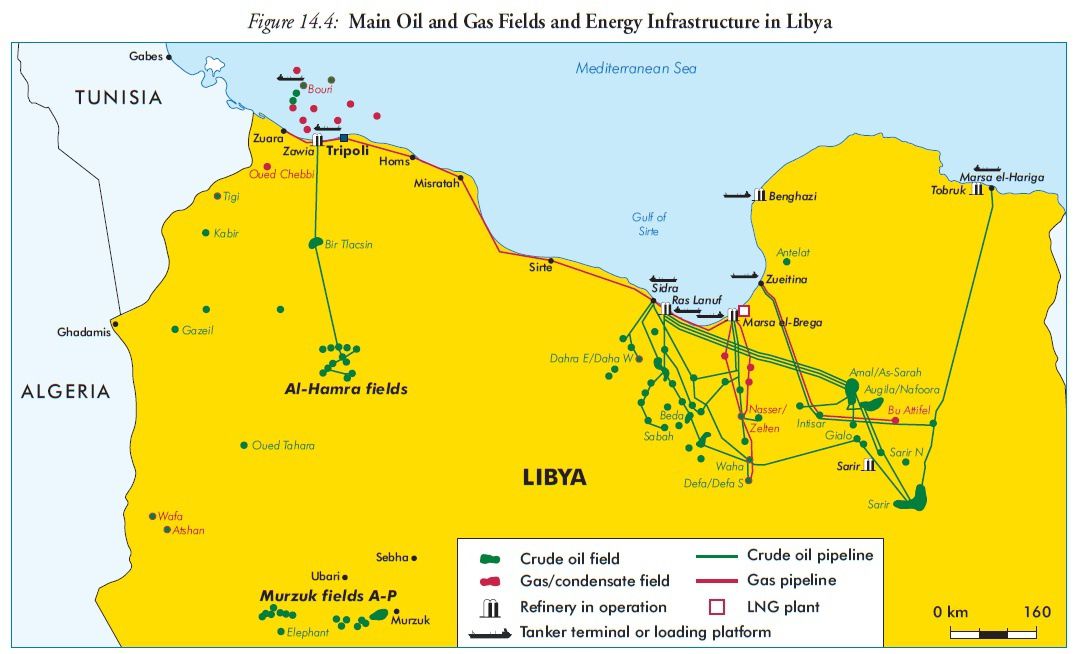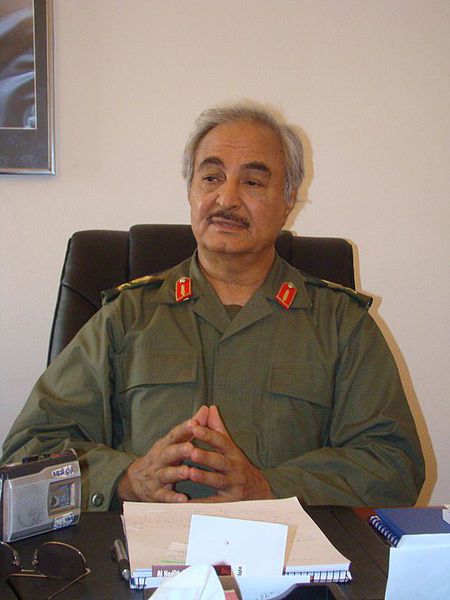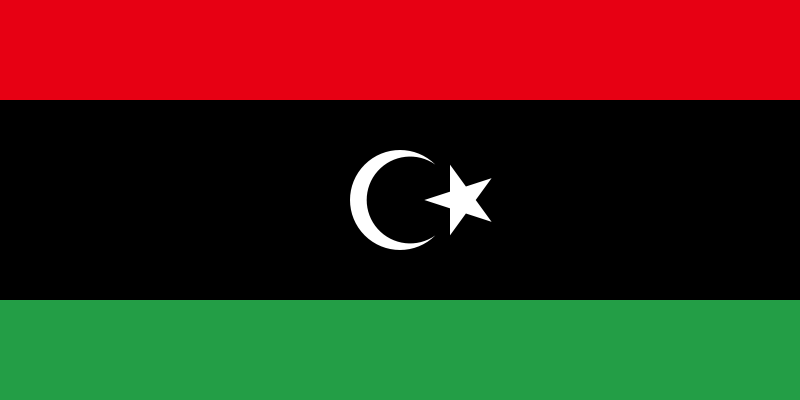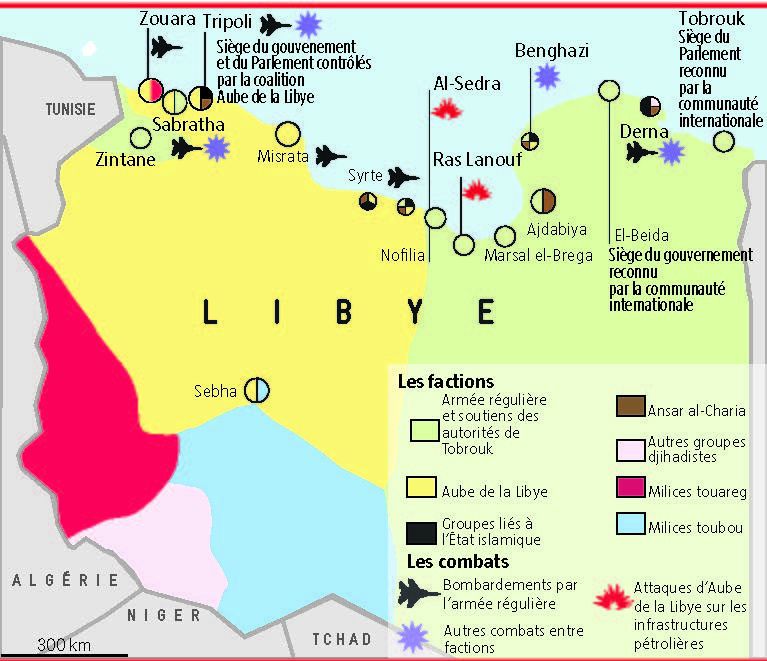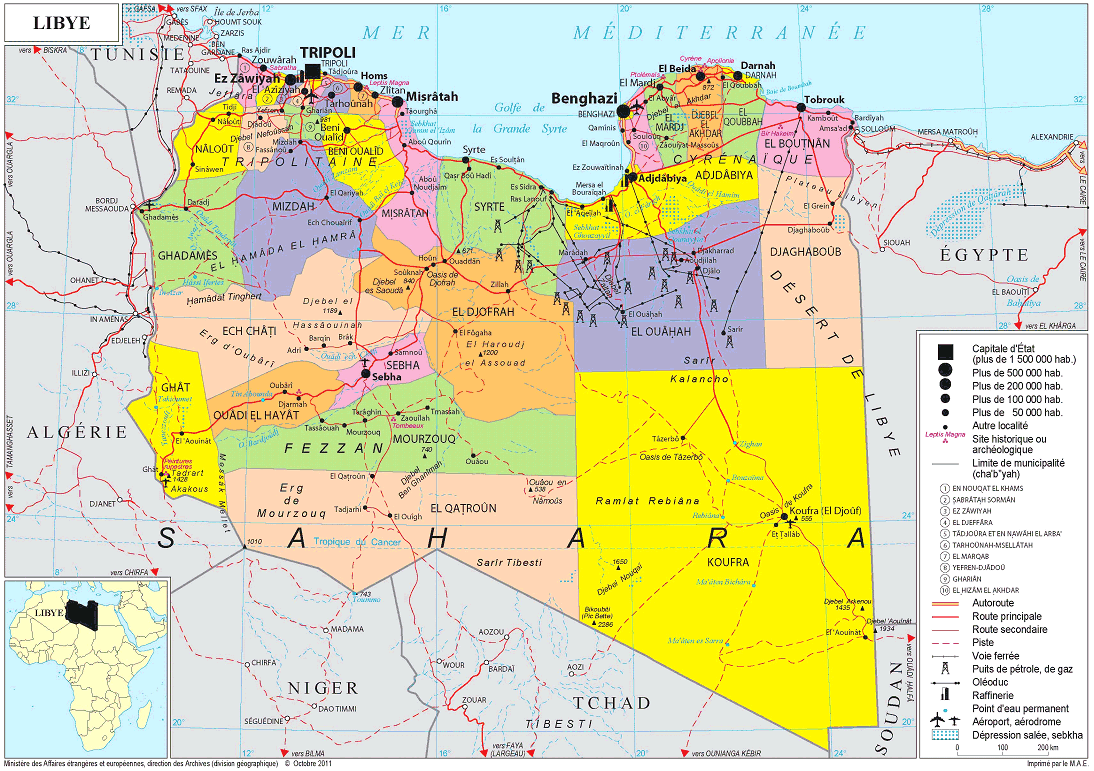09.04.2015 CLES : Notes d'Analyse Géopolitique
Le chaos en Libye menace directement l’Europe
Moins de quatre ans après le renversement par l’OTAN du régime de Mouammar Kadhafi, l’heure n’est plus à la désillusion, mais à la franche inquiétude. Instabilité politique et affrontements armés entre factions rivales ont plongé la Libye dans un indescriptible chaos.
La sécurité publique ne cesse de s’y dégrader, et le pays semble plus que jamais au bord de l’implosion, tandis que le ralliement de groupes armés à l’Etat islamique fait craindre le pire, comme le souligne une étude publiée dans la dernière lettre bimensuelle géostratégique La Vigie (28/03/2015).
Déjà fragilisées, les frontières méridionales de l’Europe sont directement menacées. La question n’est plus de savoir s’il va falloir de nouveau intervenir, mais quand, comment, et surtout pour quelle solution politique. Pour ne surtout pas reproduire l’erreur de 2011.
« Toute réflexion quant à l’avenir de la Libye nécessite de revenir sur les événements ayant conduit à la disparition de Kadhafi », prévient dans Le Monde diplomatique Patrick Haimzadeh, diplomate français en poste à Tripoli de 2001 à 2004.
« Huit mois d’un conflit fratricide, doublé de l’implication directe d’une coalition étrangère, ont abouti à l’écroulement du régime. Cette chute, seul objectif politique consensuel des insurgés de l’époque, peut au mieux être qualifiée d’‘issue révolutionnaire’. Mais aucun ordre sociopolitique stable ni à plus forte raison aucun État n’a pu émerger. Cela tient au retour en force des ‘identités primaires’, façonnées et définies par les appartenances locales et les particularismes propres à chaque groupe, ou sous-groupe, ethnique ou tribal ». Comment réunir de nouveau ce qui a ainsi explosé, métastasé ?
Un « pays mosaïque » au bord de l’explosion
Pour l’envoyé spécial des Nations unies pour la Libye, Bernardino Leon, l’objectif est d’aboutir à une réconciliation entre les deux principales coalitions politico- militaires: « Aube de la Libye », d’une part, qui tient Tripoli et son parlement, s’inscrivant dans l’héritage de la « Révolution » anti-Kadhafi, et d’autre part le gouvernement réfugié à Tobrouk, reconnu par la communauté internationale et proclamant sa volonté d’éradiquer les « milices extrémistes et terroristes ».
Le général Khalifa Haftar, un ex-officier du régime de Kadhafi entré en dissidence à la fin des années 1980, soutenu par l’Egypte voisine, domine l’appareil militaire du gouvernement de Tobrouk, dont il souhaite faire l’embryon d’une force authentiquement nationale, à même de désarmer les milices et autres gangs qui sévissent dans le pays depuis l’intervention occidentale.
Vue sous cet angle, la situation se bornerait à une querelle de légitimité politique, à la gestion de ce que les Américains nomment le Nation Building. Ce serait oublier, non seulement la dynamique jihadiste à l’œuvre, ainsi que l’ancienneté de l’ancrage islamiste, mais aussi la fragilité intrinsèque de la « nation » libyenne.
Lorsqu’elle accède à l’indépendance en 1951, la Libye regroupe trois grandes régions historiquement et culturellement très hétérogènes. La Cyrénaïque, colonisée par les Grecs dès leVe siècle av. J.-C., qui a longtemps appartenu à l’Egypte hellénistique avant d’être rattachée à l’Empire romain, et regarde naturellement vers Le Caire. La Tripolitaine, anciennement romaine et de nouveau italienne en 1912 puis de 1923 à 1943, dont l’ouest (Zentan et jebel Nefusa) reste dominé par les Berbères.
Le « Grand Sud » enfin, avec notamment le Fezzan, où Touareg et Boutou contestent l’autorité des Arabes de la côte… Les Frères musulmans, établis dans le pays depuis 1935, sont particulièrement influents, en particulier autour de leur fief de Benghazi. Soutenu par Londres, c’est d’ailleurs le chef de la confrérie qui est intronisé à l’indépendance sous le nom d’Idriss 1er.
Parvenu au pouvoir à l’issue d’un coup d’État militaire en 1969, qui dépose Idriss, Kadhafi met en place une structure étatique d’apparence moderne. Mais elle ne repose en fait que sur des alliances temporaires avec les principales tribus du pays.
« En échange de leur fidélité, il leur octroyait des postes au sein de l’armée, de l’administration et leur redistribuait une partie des ressources d’hydrocarbures », expliquent Gregor Mathias et Thomas Flichy de La Neuville dans une analyse publiée par la La Vigie (28/03/2015).
« L’État libyen se superposait en réalité sur les appartenances tribales qui avaient l’essentiel du pouvoir. En 27 ans de pouvoir, la base de soutien tribal de M. Kadhafi s’est progressivement réduite. En intervenant militairement en 2011, la coalition dirigée par la France et le Royaume-Uni a fait s’écrouler ce fragile équilibre tribal et a contribué à relancer l’opposition islamiste radicale muselée par M. Kadhafi. »
La menace islamiste
Dans une récente tribune pour Le Monde (31/03/2015), Jean-Marie Guéhenno, PDG de l’International Crisis Group et Issandr El Amrani, son directeur de projet pour l’Afrique du Nord, soulignent « la réalité d’un enjeu stratégique de premières importances »: « Si l’État libyen n’est pas préservé, c’est un croissant jihadiste, de Boko Haram au Nigeria à l’Etat islamique en Syrie qui se dessine aux portes de l’Europe ».
Et d’estimer que « diplomatie, retenue militaire et patience sont les seuls remèdes pour la Libye », avec l’engagement de négociations politiques sous l’égide de l’ONU. Sauf que, loin de s’apaiser, la situation ne cesse de se dégrader sur le terrain.
Les deux auteurs n’écartent d’ailleurs pas le risque que l’EI, qui ne représenterait aujourd’hui qu’un millier de combattants autour de quelques villes (Derna, Benghazi, Syrte et Sabratha), « puisse attirer des individus en mal de protection, d’autres groupes islamistes, des criminels, des anciens fidèles de Kadhafi ou des membres de tribus qui ont perdu leur influence après 2011. Des combattants étrangers se sont réfugiés dans des villes comme Derna, où des campements d’entraînement jihadistes ont été implantés. Des groupes radicaux venus des pays du Sahel ont été repérés au sud-ouest de la Libye. »
Le danger est de voir s’opèrer une jonction entre les combattants de l’EI, au Nord, et ceux d’AQMI (Al-Qaïda au Maghreb islamique), implantés aux confins du Niger et de l’Algérie, et dont l’action vers le Sud est pour partie entravée par le déploiement de la force militaire française Barkhane.
Sachant que bien d’autres bandes « islamo-mafieuses » à recrutement tribal opèrent sur le territoire, comme le Groupe islamique de combat libyen (GICL), fondé en 1995 par des moudjahidins de retour d’Afghanistan, ou Ansar al Charia, proche d’Al Qaida.
La « Libye utile » étant concentrée sur la côte, c’est dans cette région que se joue pour une bonne part l’avenir du pays. Notamment en Cyrénaïque, devenue « à la fois le point d’aboutissement de tous les trafics transsahariens et la plaque tournante de leurs exportations à destination de l’Europe, dont celui de la cocaïne qui, venant d’Amérique du Sud, transite désormais par le Bénin et le Nigeria avant d’être transportée vers le Nord par les islamistes de Boko Haram puis par les jihadistes qui tiennent le sud libyen. Ces mêmes réseaux islamo-mafieux contrôlent le flux de l’immigration clandestine qui aboutit à Malte et à Lampédusa » (L’Afrique réelle n°50, 02/2014).
Vers une nouvelle intervention militaire…
Vaste et sous-peuplée (1759540 km2 pour 6,5 millions d’habitants), à 90 % désertique, la Libye est un couloir traditionnel d’échanges entre l’Afrique subsaharienne et la Méditerranée. Ce sont en particulier les enjeux migratoires qui avaient permis au régime khadafiste de renouer avec l’Europe (accord de lutte contre l’immigration irrégulière avec l’Italie en 2003, instauration d’un visa libyen pour les étrangers en 2007…).
L’afflux de migrants sur les côtes italiennes depuis la chute de Kadhafi (231314 ces 7 dernières années, dont 170000 rien qu’en 2014, et encore 3 528 pour le seul mois de janvier 2015), les drames qui en résultent souvent, témoignent de l’urgence à agir.
« À la question sécuritaire des islamistes s’ajoute celle, centrale, du trafic transsaharien, notamment dans le couloir entre Niger et Libye », confirment Gregor Mathias et Thomas Flichy de La Neuville.
La situation est d’autant plus explosive que les puissances régionales interfèrent déjà dans les conflits tribaux et religieux. La Turquie et le Qatar soutiennent le gouvernement de Tripoli. Le Soudan est soupçonné de livrer des armes à l’Etat islamique et aux Frères musulmans.
Et l’Egypte arme le gouvernement de Tobrouk pour sécuriser sa frontière. Elle est d’ailleurs déjà intervenue militairement le 16 février 2015, à la suite de l’assassinat de 21 Coptes égyptiens par l’EI.
En cas d’échec de la médiation de l’ONU, la dégradation de la situation sécuritaire au nord de la Libye rend pratiquement inévitable une intervention étrangère. Vraisemblablement via une coalition régionale (Niger, Tchad, Égypte, Algérie) soutenue par des États occidentaux (France, Royaume-Uni, Italie, États-Unis).
Reste qu’une telle intervention nécessite la définition préalable d’une solution politique acceptable, tant par les Libyens que par les puissances régionales aux intérêts divergents. « Si une personnalité consensuelle n’était pas trouvée, le pays risque immanquablement d’éclater en plusieurs morceaux, préviennent Gregor Mathias et Thomas Flichy de La Neuville. L’Égypte aura alors tout intérêt à créer une zone tampon en Cyrénaïque, de même que l’Algérie dans sa zone frontalière, tandis que la côte de Tripoli à Syrte risquera de se transformer en un émirat islamiste de non-droit sur le modèle de la Somalie. »
Et pouvant fédérer des groupes islamistes jusqu’alors antagonistes, réalisant le risque que toutes les puissances cherchent à éviter.
Vers un Etat islamique en Afrique du Nord ?
Pour aller plus loin :
- « Quelle solution à la crise libyenne ? », par Gregor Mathias et Thomas Flichy de La Neuville, note du groupe Synopsis publiée par La Vigie n°13, www.lettrevigie.com, 28/03/2015 ;
- « En Libye, ce n’est pas le chaos, c’est la guerre », par Patrick Haimzadeh, Le Monde diplomatique, avril 2015 ;
- « Libye : Jusqu’où peut aller la dissociation territoriale ? », L’Afrique réelle n°50, février 2014.






/http%3A%2F%2Fpbs.twimg.com%2Fmedia%2FCWZAGZpWoAAPhMY.jpg%3Alarge)
